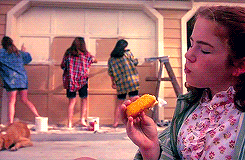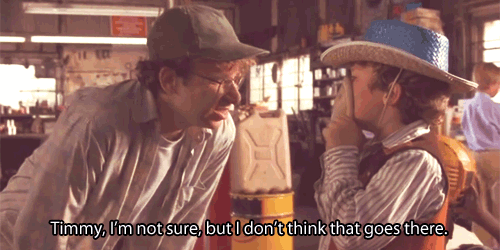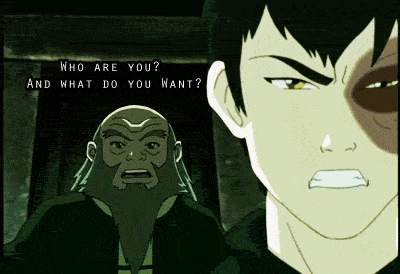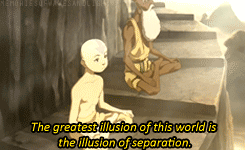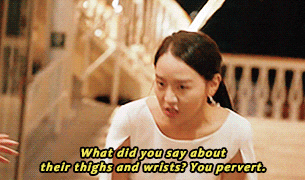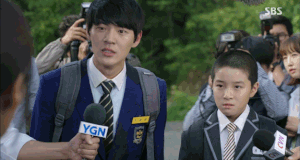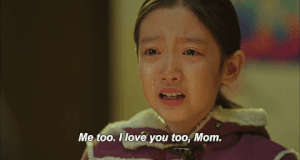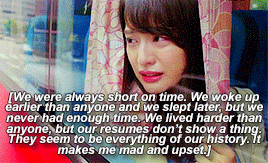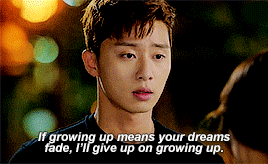What Kdramas Taught Me About Storytelling
By Zalika Reid-Benta
OK so first I feel like I should explain that literature and TV/film motivate me in different ways. I like to see it as craft vs. content. Books I love or respect teach me about word choice and pacing, about tone and imagery. In the past I have written out passages from novels and short story collections that I find exceptional to try and study how the author created the emotion the words inspired in me:
“She was the third beer. Not the first one, which the throat receives with almost tearful gratitude; nor the second, that confirms and extends the pleasure of the first. But the third, the one you drink because it's there, because it can't hurt, and because what difference does it make?”
- Toni Morrison, Song of Solomon
On the other hand, television and film help me with content. I have mentioned that growing up watching movies like Now and Then or The Little Giants made me realize I wanted to see coming-of-age stories that reflect my experience and experiences of girls I know.
Another example is that I watch at least one season of Avatar: The Last Airbender when I’m stuck on character development. It's a show not without its faults but Aang’s road to maturity and Zuko’s redemption arc are handled so meticulously that watching the show not only inspires me to write characters with that kind of growth but watching the show and mapping out when certain peaks and lows hit and the contexts surrounding them helps me understand my own writing better.
What Korean dramas have taught me is that through authentic emotion and nuanced characterization, storylines that sound simple or overdone can still be exciting, they can still evoke strong responses in viewers (or in my case, readers). Granted, this may sound like a lesson I can learn from reading certain books or watching certain Western shows and movies but what I find interesting is that with a Kdrama, the strong response that's being evoked is not one of familiarity and comfort at the predictable storyline, it's of surprise because the characters make the storyline unpredictable. What's more is that I find that watching a Kdrama is like watching a visual novel, I can break up movements in episodes into chapters in my mind.
Here's an example using a Kdrama I'm currently watching called Angel's Last Mission: Love.
Your CanLit News
Subscribe to Open Book’s newsletter to get local book events, literary content, writing tips, and more in your inbox
This is the summary: Troublemaker angel named Dan must find love for icy ballerina Yeon Seo in order for him to return to his heavenly realm but falls in love with her instead.
On its face, it sounds cliched, sappy and maybe even a little silly ("City of Angels much?" is what I thought when I first read that description). However, because it is character-based rather than event-based, we quickly realize within the first two episodes that Yeon Seo is more than simply an "icy" ballerina and much more than a cliche.
1. Her parents died when she was seventeen.
2. An accident during her performance of Swan Lake caused her to brutally lose her eyesight and for three years, she's been denied a cornea transplant.
3. Once she receives a cornea transplant it's because her personal assistant and surrogate father died in a car crash that had almost claimed her life as well and he donated his corneas to her.
4. She's experiencing trauma because of this passing.
5. The drama also manages to touch upon other issues in its telling of this story
The commitment actors have to portraying the emotions of their characters is another reason I enjoy Kdramas and it's a principal reason for why their storylines work. It's true, I don't have actors in my stories and so it is up to me to convey what actors would but it took me a long time to really appreciate what it means to take emotional risks on the page (and to understand the payoffs of doing so) and it's something I continue to struggle with. Watching the actors bleed onscreen reminds me of those payoffs.
Another lesson I learned from Kdramas is "going all the way." When circumstances are bad for a character, they're actually quite terrible
and it would appear to be melodramatic if not for the investment these dramas have in their characters and in making the viewer feel their every heartache. This actually reminds me of something my thesis advisor explained to my cohort during workshop: a tense moment in real life may read as flat on the page --- sometimes to express tension authentically you have to be outrageous. What Kdramas tell me as a writer is that subtlety exists within extremism
and that can allow for relatability and empathy.
Korean dramas listed in this post:
Angel's Last Mission: Love
Pinocchio
Goblin: The Lonely and Great God
Fight For My Way
The views expressed in the Writer-in-Residence blogs are those held by the authors and do not necessarily reflect the views of Open Book.
Zalika Reid-Benta is a Toronto-based writer whose work has appeared on CBC Books, in TOK: Writing the New Toronto, and in Apogee Journal. In 2011, George Elliott Clarke recommended her as a “Writer to Watch.” She received an M.F.A. in fiction from Columbia University in 2014 and is an alumnus of the 2017 Banff Writing Studio. She completed a double major in English Literature and Cinema and a minor in Caribbean Studies at University of Toronto’s Victoria College. She also studied Creative Writing at U of T’s School of Continuing Studies. She is currently working on a young-adult fantasy novel drawing inspiration from Jamaican folklore and Akan spirituality.
